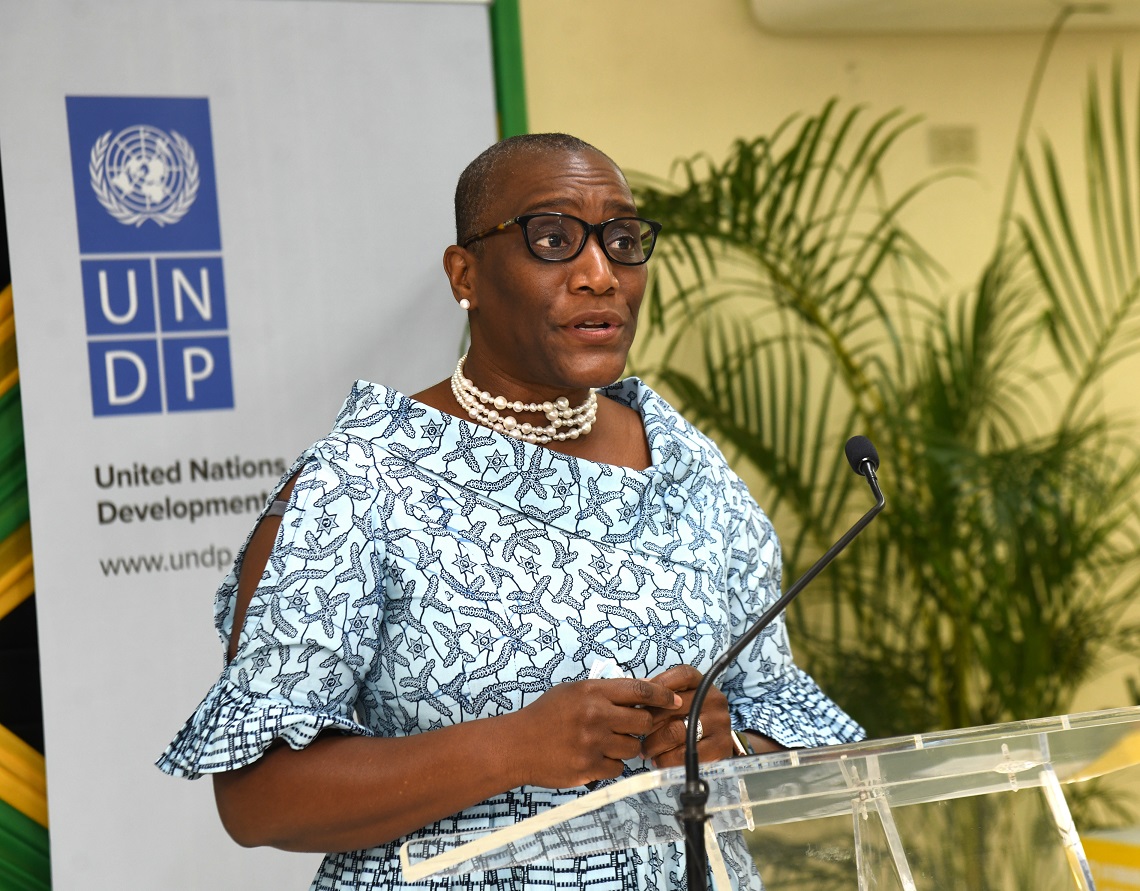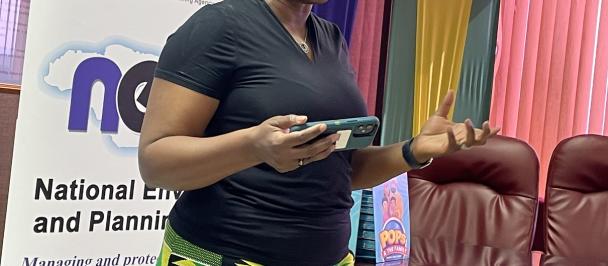Remarks by UNDP Resident Representative, Denise Antonio, 1 June 2023 (Start of Hurricane Season 2023)
UNDP’s Resilient Series Fireside Chats
June 2, 2023

UNDP Resident Representative, Denise E Antonio
Salutations
- Permanent Secretary, Ministry of Home Affairs in Bermuda, Rozy Azhar
Director General, (Acting), Jamaica’s Office of Disaster Preparedness and Emergency Management (ODPEM), Richard Thompson
Resilience Planning and Development Consultant of the Climate Resilience Execution Agency for Dominica (CREAD), Samuel Carrette
Representatives of Ministries, Departments and Agencies, and academic institutions on location at UNDP and online
Members of the media
Other distinguished ladies and gentlemen
A warm welcome to those present in our UNDP Multi Country Office in Jamaica and also to our online viewers on Day One of the 2023 hurricane season.
In the era of Climate Change, hurricane season reenergizes global conversations around resilience.
As climate change continues to affect the frequency and intensity of weather events, and as demographic patterns shift around the world, the impact of natural disasters-including the financial costs, will only increase. Therefore, building resilience and properly planned disaster mitigation efforts are more critical than ever before. (Weather, Climate & Catastrophe Insight, 2019 Annual Report)
In 2020, there were 416 notable natural disasters events at an estimated cost of over $268 billion (Weather, Climate & Catastrophe Insight, 2020 Annual Report).
According to IMF data, between 1950 and 2016, 324 of the 511 disasters worldwide happened in the Caribbean, killing 250,000 people and affecting more than 24 million through injury and loss of homes and livelihoods.
Our region is seven times more likely to be hit by natural disasters and sustain damage to GDP six times higher than larger nation states.
We are not helpless. The Caribbean can contribute significant solutions to support global mitigation efforts.
The Head of UNDP, Administrator, Mr. Achim Steiner, insists that the world has the knowledge, expertise, and technology to mitigate these risks through innovation, knowledge-sharing, risk-taking, and market transformation.
UNDP’s disaster risk reduction and recovery team (DRT) works to mainstream disaster risk reduction in Latin America and the Caribbean. works with country partners to strengthen national policy, foster greater coherence to Disaster Risk Reduction and Climate Adaptation efforts and strengthen preparedness and recovery measures. Through its work, DRFT contributes to the Sendai Framework for Disaster Risk Reduction and contributes to the achievement of the Paris Agreement.
Countries served by our Multi Country Office lie in the path of an active hurricane corridor and have had to adapt over the years out of necessity.
Through UNDP’s Resilient Series that starts today, we will facilitate knowledge exchanges to showcase their work to the world.
UNDP has been privileged to support Disaster Risk Reduction and early recovery efforts with a focus on ensuring that the requisite capacities, resources and skills are in place to prevent, mitigate and prepare for disasters in the Caribbean. Our solutions include Disaster Risk and Housing and Building Damage Assessments, build back better policy and technical advice and access to our global knowledge network with every DRR skillset required by nations. This support continues globally through UNDP’s global strategic plan as one of six signature solutions and through our 2022 – 2026 Multi-Country Office Programme as one of four pillars.
We have a significant body of work in climate resilient regulatory frameworks. Under our previous 2017 to 2021 country programme, UNDP supported strengthening of policy frameworks for a disaster resilient future in TCI and The Bahamas after two category five hurricanes made landfall. We also focused on building capacity of MSMEs to build more resilient businesses and to support restoration of their operations through micro grants.
Thanks to US$1 million funding from the India-UN Partnership Development Fund we are currently partnering with the Government of The Bahamas on the construction of a hurricane resilient shelter on Abaco. As a model of climate resilient construction methods based on build forward better standards, this centre will double as a recreational facility and safe space.
As we develop capacities to withstand and to recover quickly from crisis, nations along hurricane and cyclone hotspots can secure their development gains and stay the course in lifting the lives and ambitions of their people.
I look forward to insights from colleagues in today’s Fireside chat, which I am pleased to announce, will also inform the Abaco shelter project.
You can count on us to be your agile, responsive partner in our shared quest for a climate resilient future. And now, let the fireside chats and inspiration begin.

 Locations
Locations
